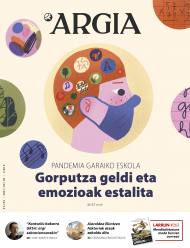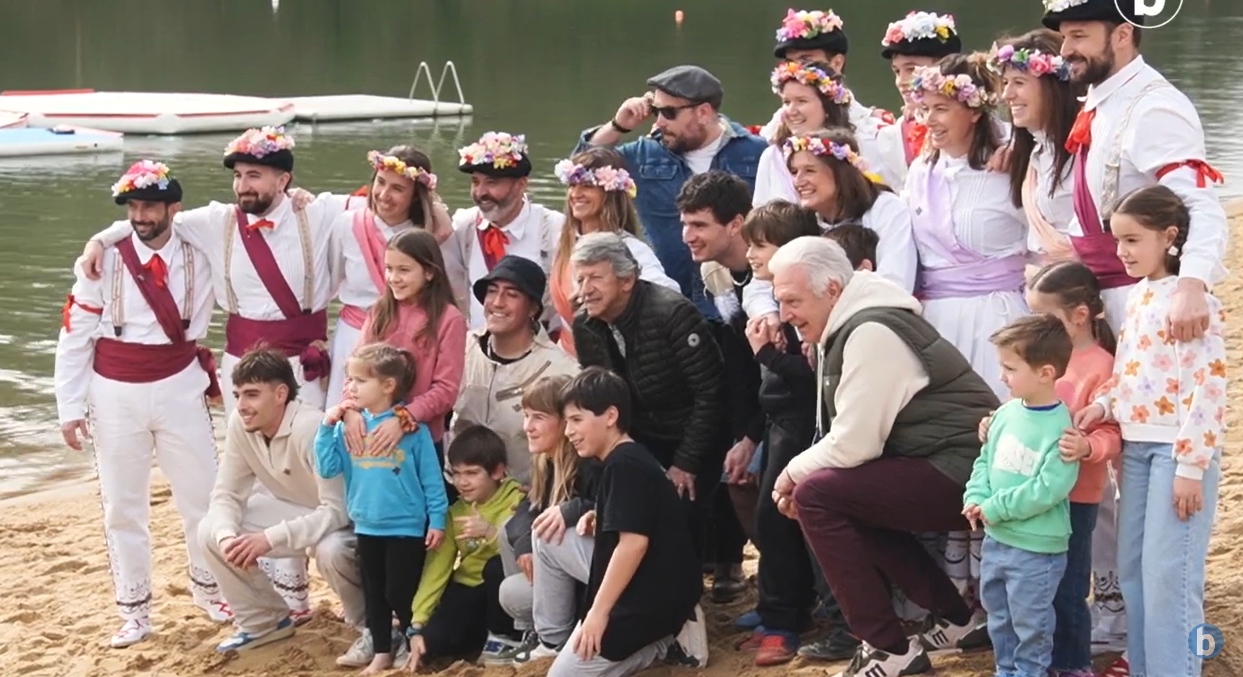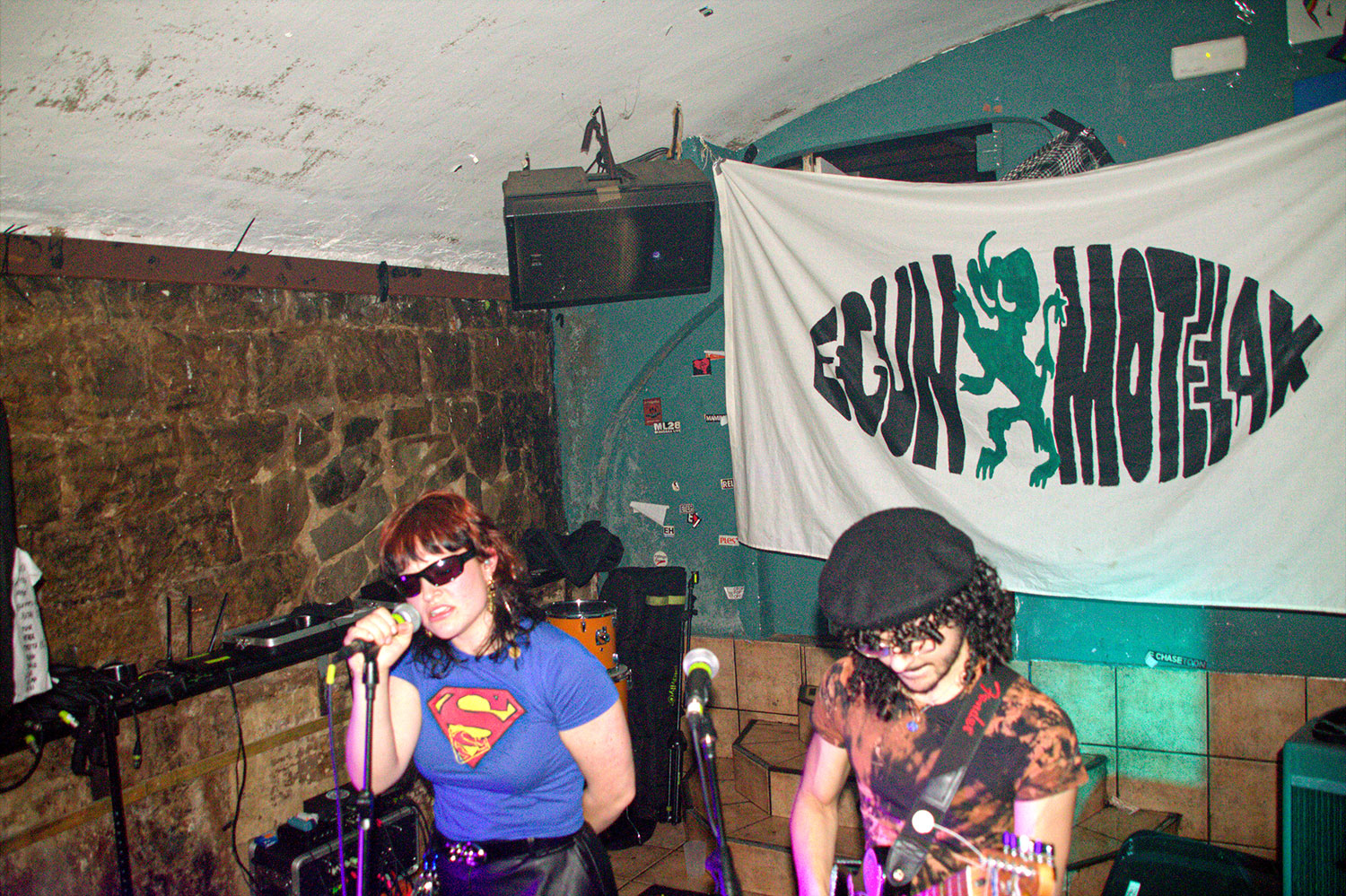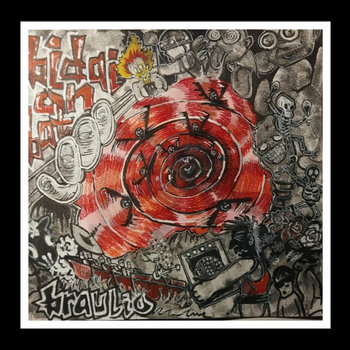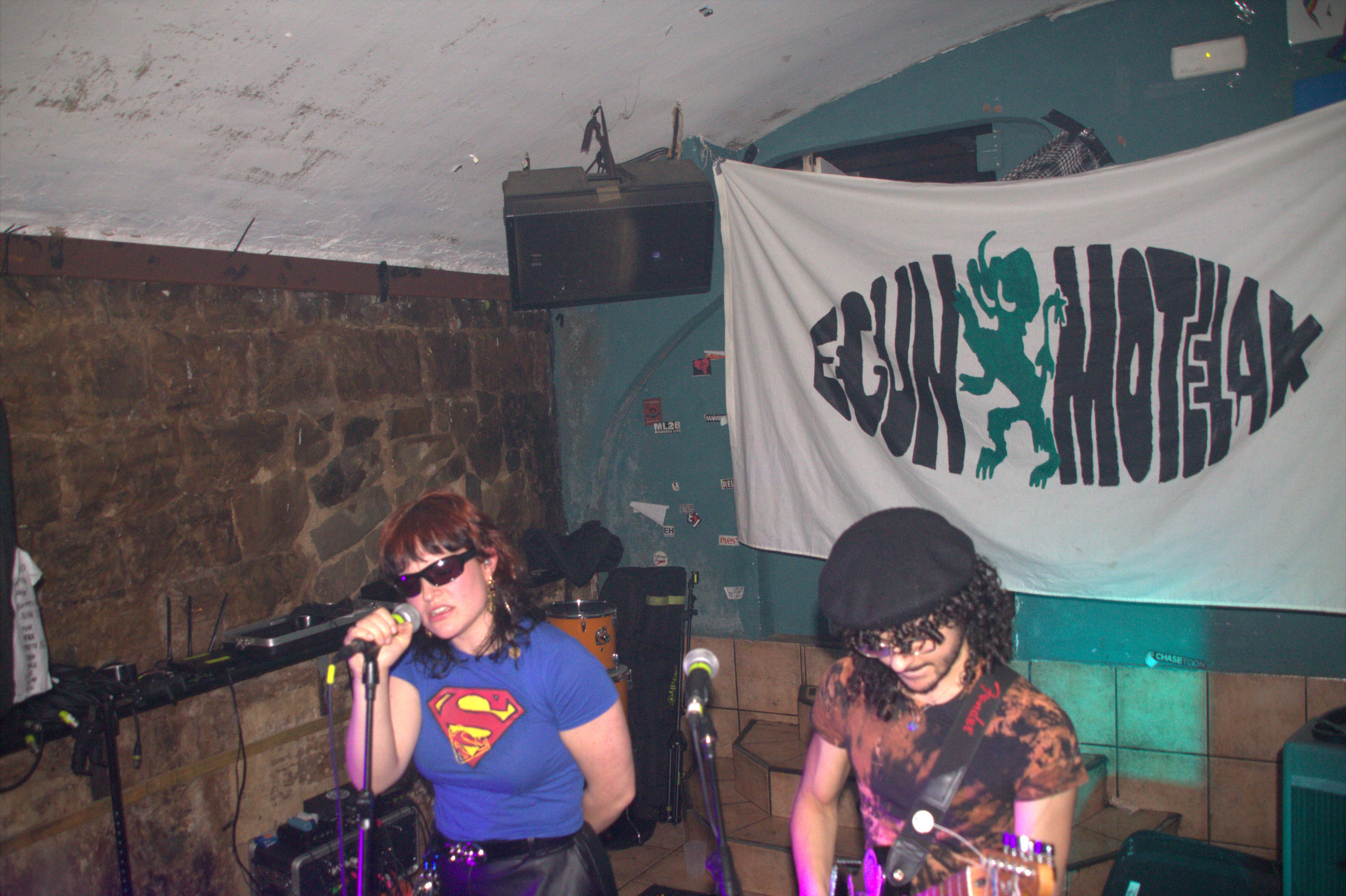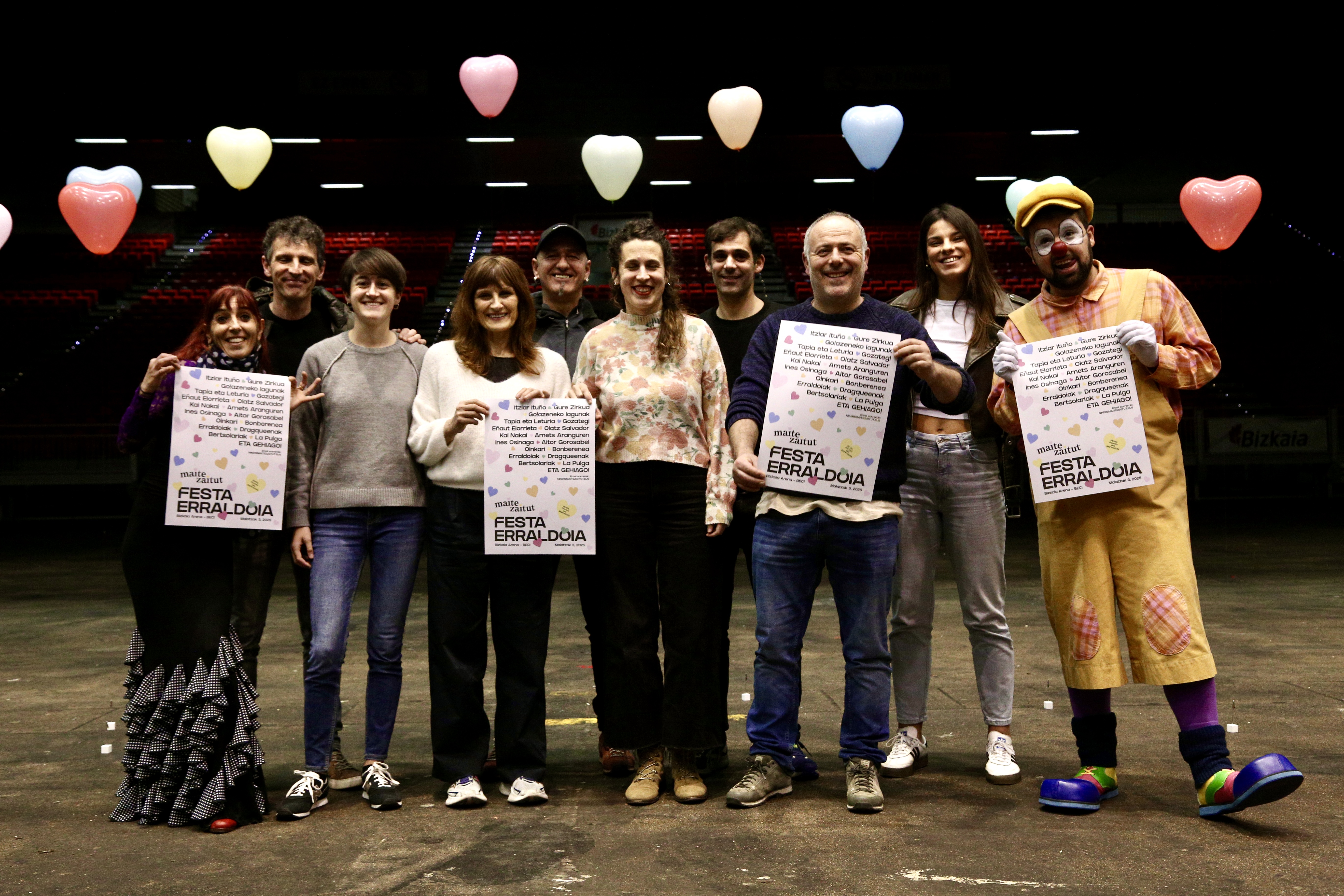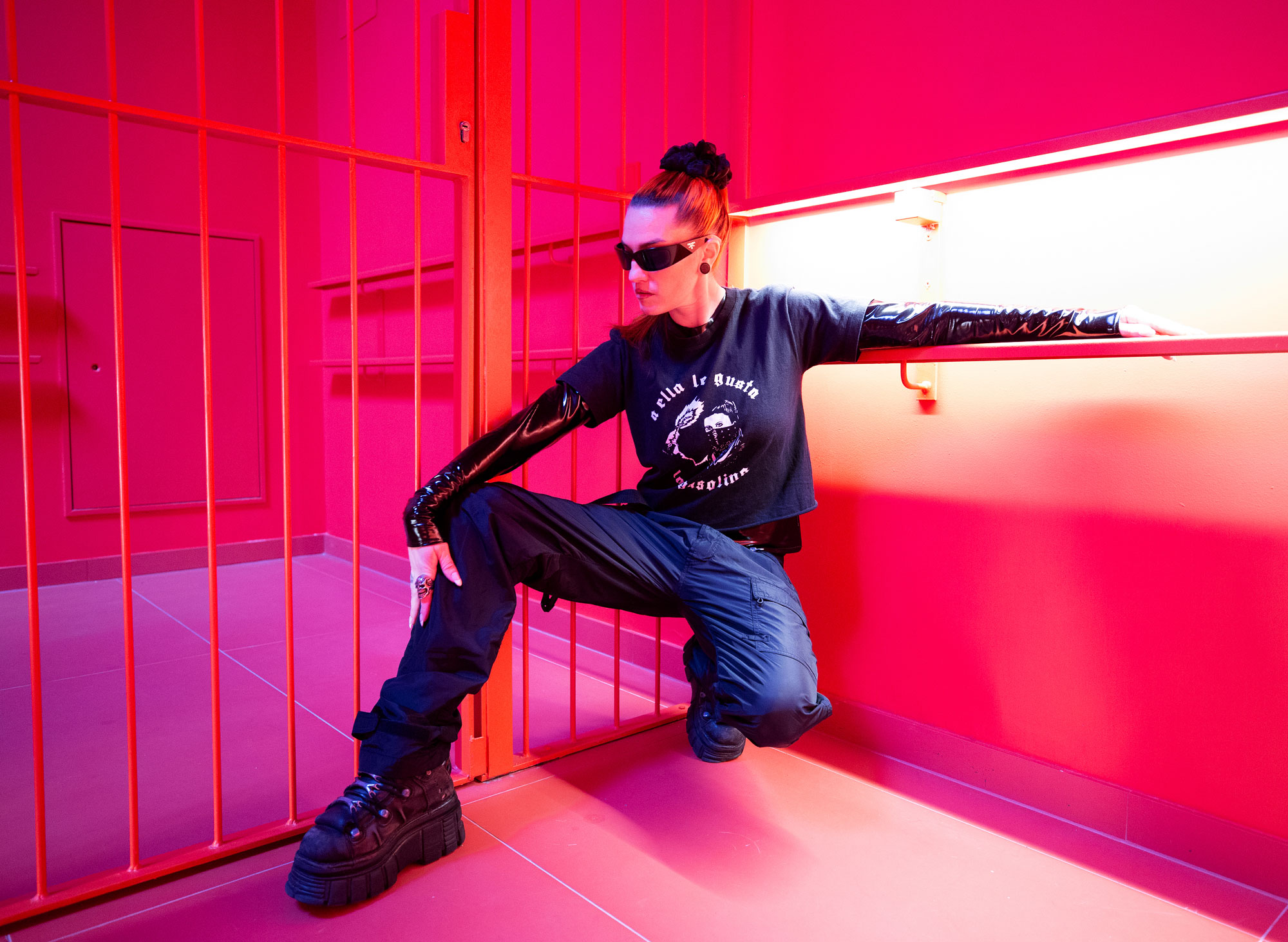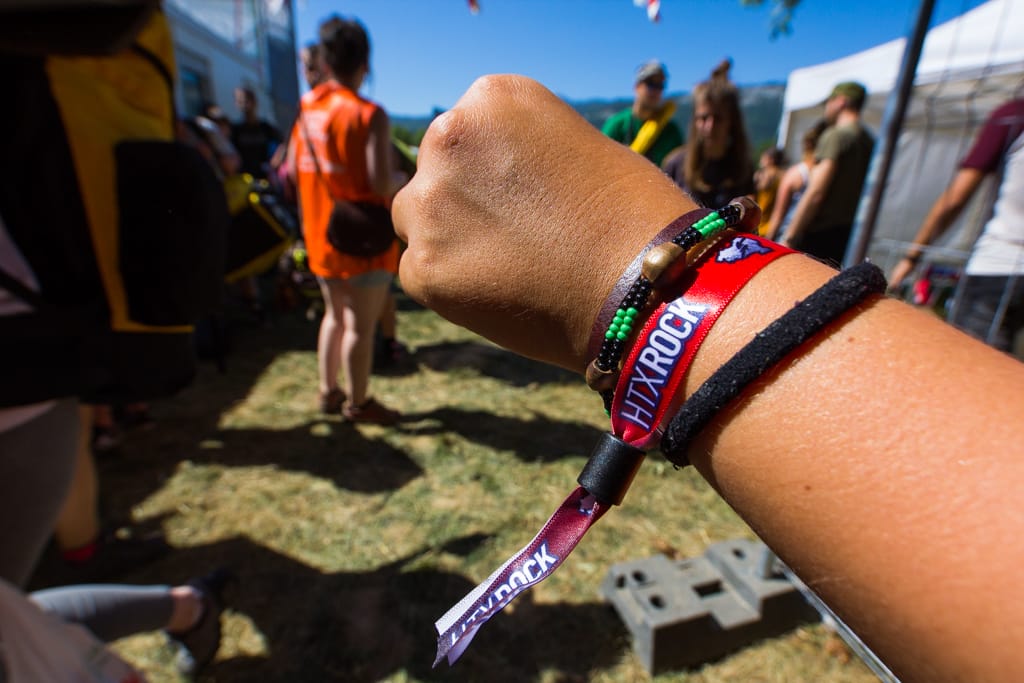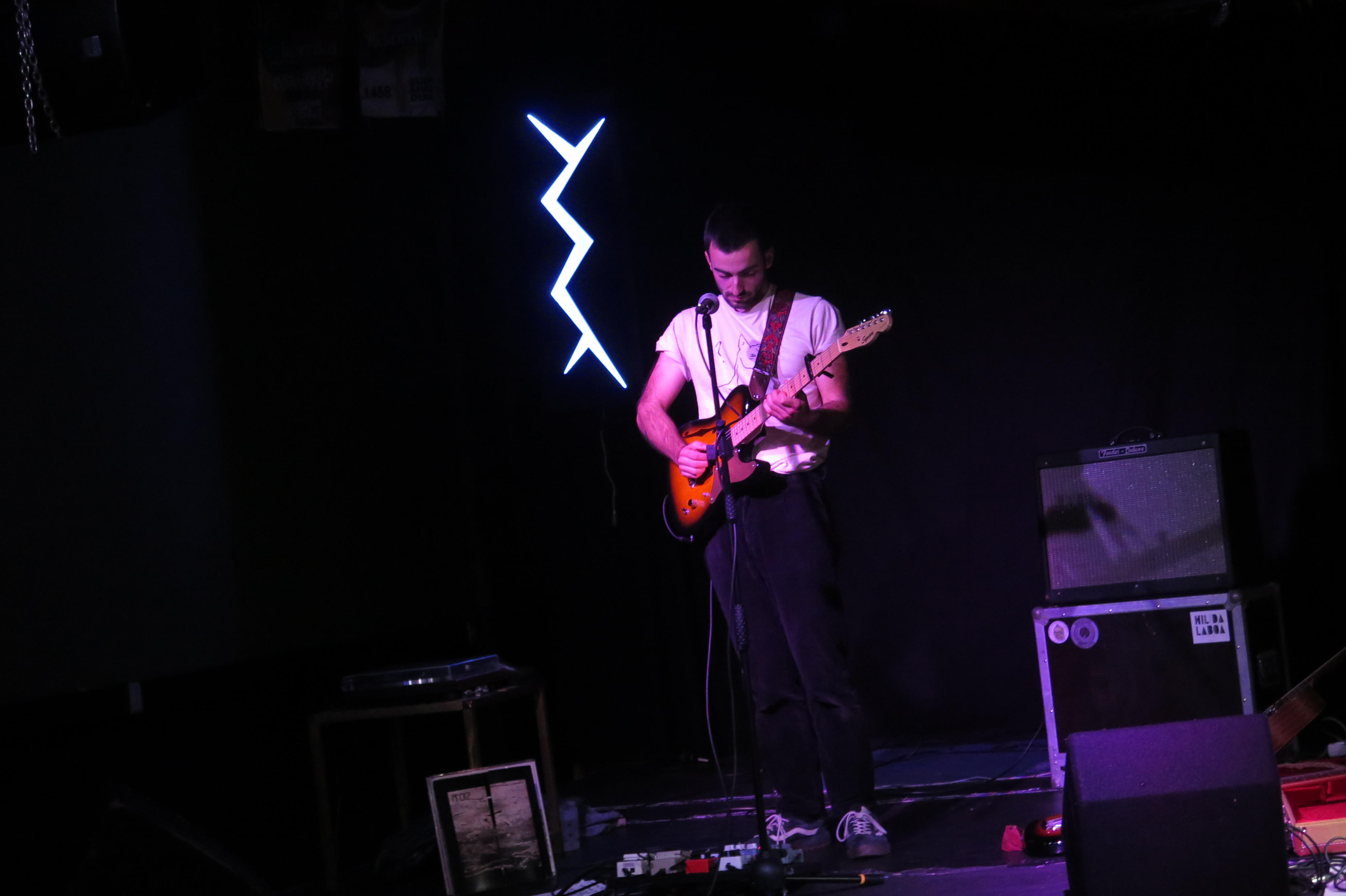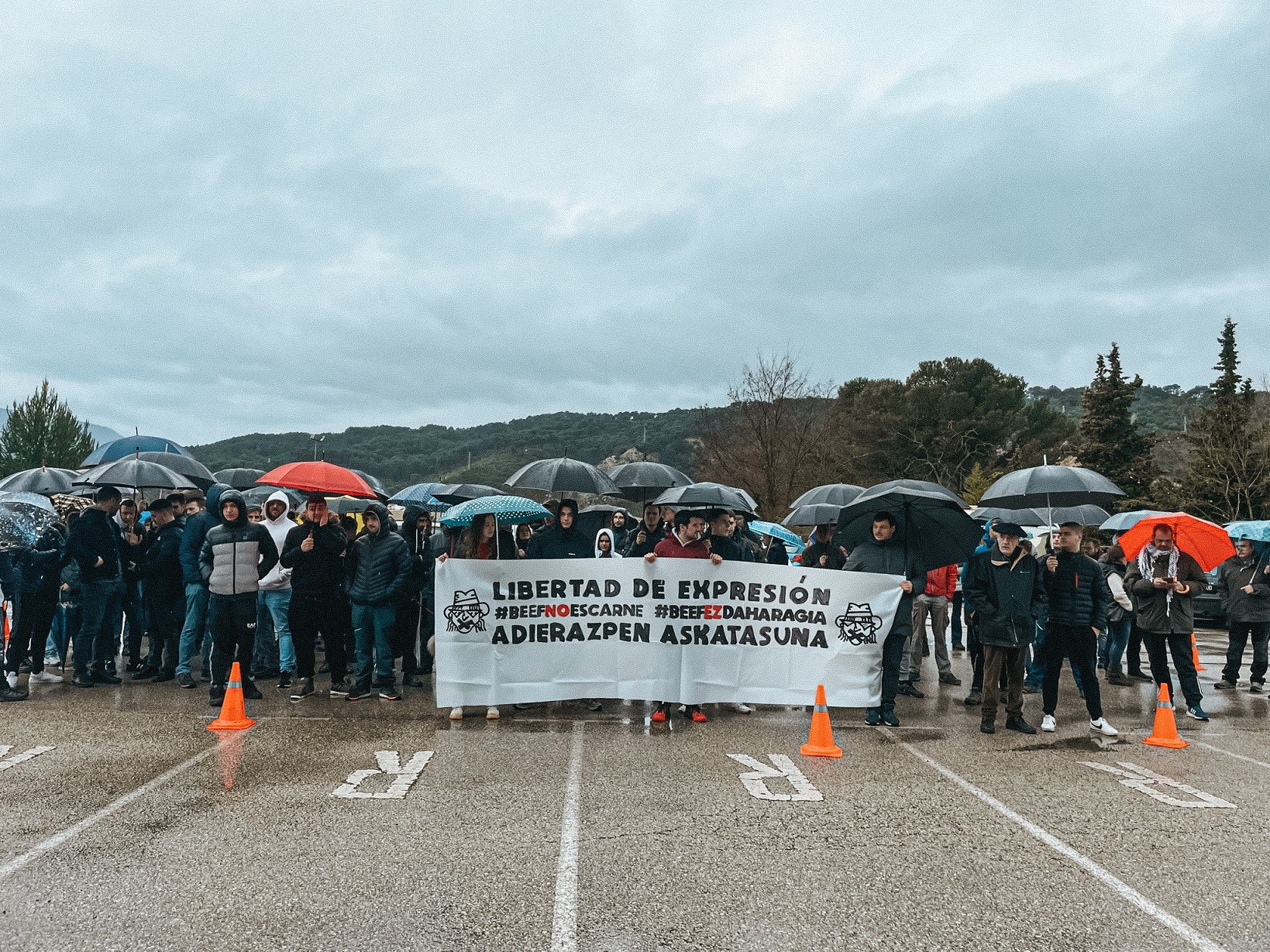"Music is lifelong learning, I'm always listening to new things."
- Mikel Acosta has created the Hegoa Diska label in London to publish experimental Basque music works. He went to live there nine years ago, and the perspective of distance has served him to take a different look at the musical panorama of Euskal Herria. Now, from this point of view, he looks at the works of the past and the present and, if he has a chance, publishes those that most fascinate him. At the moment he has released two albums, a collection by Angel Katarain and the second by the Carcassonne group, but the next ones are on their way. After interviewing Katarain for the previous issue, it seemed to us that the person who has recovered his work deserved the same.
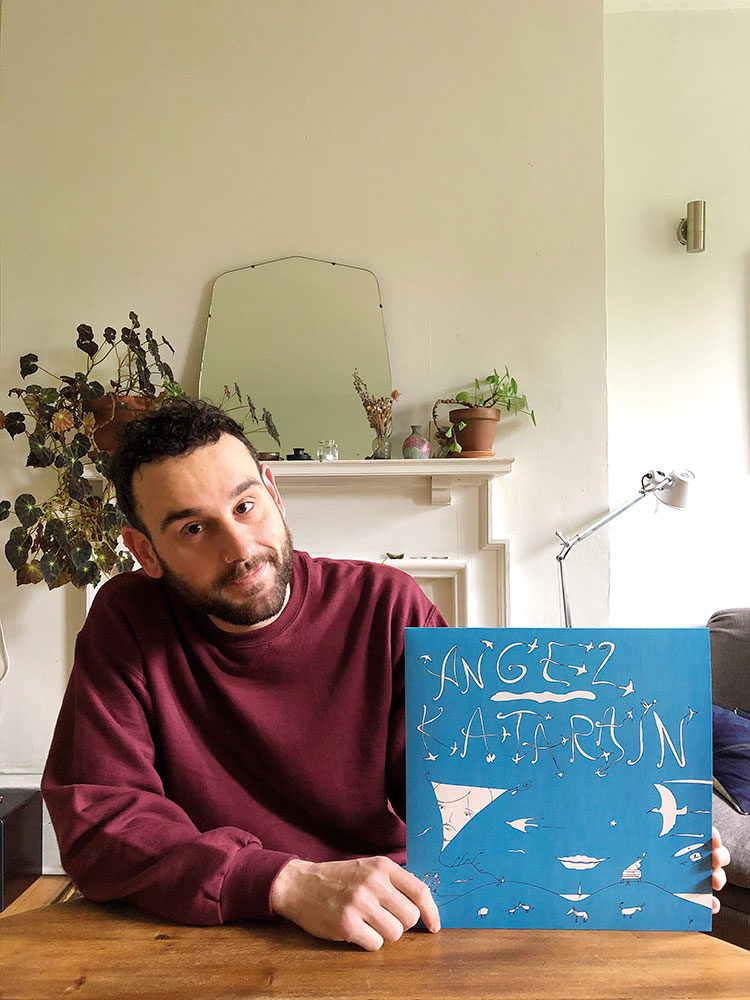
Mikel Acosta (Irun, 1986) has been captured just after three months of confinement. They have had the opportunity to go out and shop and play sport for a couple of hours, but in the rest they have had to be at home. However, he works four times a week in a friend’s wine and meal store, so he’s had more chance of moving than others. He lives “inevitably” with three roommates. “Here the rentals are very expensive and it is common to live with three, four or five people.” In any case, he does not complain. As you can see from the other side of the screen, in the house they have a small garden and they make barbecues at noon, taking advantage that it has long been doing good atmosphere. We stole him a while earlier.
You've been living in London for nine years. What drew him?
Music. I first came on an Interrail trip with a friend and I was flipped. Here's a lot of varied music. Globally, after New York, London is probably the city with the most variety of music: reggae, dub, African music, Asian… That drew me. In very few places I've noticed as much passion as here for learning music, for arguing, for sharing with friends, for broadening my point of view. Here the music is everywhere. Before this rare year, more than 200 concerts were held daily in rooms of all sizes. When I came for the first time, I had a huge change in the way I listened to music, and every year more.
In what sense?
When I came, I heard mainly indie music. Arcade Fire and similar. All these groups come to Euskal Herria, but here my ear quickly changed me. One of my best friends is the Turkish, through which I've heard a lot of African music: Fela Kuti, jazz, and finally, a lot of other things. You make friends from every corner, everyone brings their culture, and every day you taste all that.
So London served you to widen the spectrum of what comes from official channels.
Totally. The city is so alive, because you yourself make your own spectrum. Pitchfork and the like always mark a line, but here many do not give much importance to it and make their own way. In short, where there is great musical richness, the impact of official channels is reduced.
He left with the intention of working as a sound technician.
I made a two-year sound cycle in a private school in Pamplona. I really liked it, and when I finished I came to London thinking I could still work as a sound technician. As soon as I arrived, I realized that the priority was to learn English intelligently. The first years I spent working in hospitality and improving the English a little. Little by little, I started playing bass in some music groups, and soon after I learned that there were scholarships for Europeans and I studied a college degree, the Bachelor of Science in Music Technology. It was dedicated to music and technology: production, direct production, others. I finished, and I started working. I was lucky that on weekends I was a resident DJ through some friends with four or five music halls.
And as a sound technician?
A bit yes, but after how little I've walked I've realized I don't like it very much. Musicians are hard people [laughs]. There's a lot of ego, one wants more volume, the other -- they're very difficult to manage. In this sense, I feel more comfortable in the electronic environment than in traditional rock. I like the experimental attitude, that moment when things mix up, something interesting always emerges. I'm interested in the unspeakable.
When did you dare to create the South Discs?

I'm a music collector, and I found a couple of Basque albums, quite curious, I've never heard before. Haizea, Errobi, and those 1970s groups that were near progressive rock. I listened to Kaotiko, Segismundo Toxicómano, Eskorbuto, later to Lisabö, etc. On the other hand, here's a well-known broadcaster called NTS. Musicians or DJs are dedicated to putting songs and you can hear anything outside of the commercial circuits. One of them put Basque music, a album by Amaia Zubiria and Pascal Gaigne from the 1960s. Jazz mixed with traditional singing, saxophone, synthesizers, etc. They have fantastic songs. From there I discovered more things, and I became interested again in Basque Country.
What exactly fascinated him?
Passions for the mixture. You can mix things in a thousand ways, but the hardest thing is to do it naturally, without any kind of fraud, without any kind of coercion. And in the case of these Basque musicians, there's no calculus, they're taken out naturally. That's noticeable. You hear the album La Noche de Búho del Viento with its bells and electric guitars, songs of ten minutes… something very rare and nothing avail. They did it because they really wanted to experiment.
It is striking how all these groups have remained in part B of the “official history” of Basque music…
I have that feeling, yes. “How have I not heard these records before?” If I have not heard it until recently, it is a sign that there is a great vacuum there. Radical rock has had great weight, Ez Dok Amairu and protest songs as well, but between them there are great treasures. The point is that to reach them you have to track a little. Good music has always been, at all times, everywhere. La Polla Records and those are OK, but it was a time, and now I am attracted to other things. For me, music is lifelong learning, I'm always listening to new things.
And so did you dare to discover those artists in the '70s to create your own seal?
As I mentioned, I collect records. In the collector's environment there's everything, people pay a fortune for the strange records. In 2007, Rogelio Astigarraga, from Akauzatz, started his own Atanas Akerstra project. An impressive album, blues and mix of psychodelia, including organs, that looks engraved in a cave. I wanted to buy it in vinyl, but I couldn't find it. In the end I found a guy who had the album at 250 euros. Ridiculous. It was from Valencia and it was dedicated to it: if you took a hundred copies of a record, it would buy half of it and then sell it more expensive.
"Radical rock has had an enormous weight, Ez Dok Amairu and the protest songs as well, but between the two there are great treasures"
Experimental music speculator?
Absolute. They exist in the world of vinyl collectors. I tried to buy at a more reasonable price, but not. And eventually I thought: someday I'm going to make a stamp myself, and I'm going to reedit that record. That's what I came up with, half-joked. Shortly after, being in Irun, Karlos Osinaga taught me the songs of Ángel Katarain and I liked them all of a sudden. And I thought, “This is going to please my friends in London.” I think that night I decided I had to seal. Some friends here have created little stamps, and having three or four things I wanted to post, I started talking to them. I had no idea how something like this is done. Where to make them come? How much money is needed? For a few months, I've been learning about these kinds of things.
The cover of Katarain's album was made by the illustrator Jon Zabaleta. How did he go to him?
I was thinking for a long time who could make the skin, but I couldn't find anyone. In Madrid, I had a friend, a graphic designer, but I didn't want a typical cover. I'm pretty clear about what I don't like. One day I was listening to the wind disc at home and I looked at my skin. It's amazing, and Jon Zabaleta did it. In addition, inside the cover there is a drawing made by chance in the Jaizubia district of Irun, just where my grandfather worked. And I thought, "Is this guy alive?" I was on Facebook and I was there. We ended up talking by video call and he was ready. He sent me several drafts, and I said it as soon as I had it, “this is.” It's very different from the dominant surfaces today. If you see that album in a store, on the first blow you realize that something is different.
In addition to recovering old works, you will also publish works by contemporary musicians.
I have just received the second album from the Carcascara group. It's a project by Iñigo Ugarteburu and his two friends. He lives in London and his friends in Zumaia, if I am not mistaken. A record that they recorded twelve years ago. They meet once a year, for a week, and only then do music. They didn't intend to publish a new album, but they showed me, I really liked it and thought about adding it to the collection.
"I didn't create this label for money. Selling 300 copies of vinyl does not economically compensate for the time I spend"
What binds the musicians on your label if nothing brings them together?
In the early days, nothing. Katarain's ambient music is completely different from Casing's. They confuse acoustic guitar with jazz in an introspective way. Everything joins my personal tastes, nothing in common. And then the people behind these projects are of great importance. I have not created this label for money. Selling 300 copies of vinyl doesn't economically make up for the time I spend. These musicians also don't make music for money, but because they're on a project they like. If there is any line, there it is: they are singular projects, wanting to do different things. For example, on the Carcasca disc we will make separate folders. And we don't put music like Spotify.
How are you thinking about starting? Do you intend to release as many albums a year or so?
The only goal is to do a lot of things just to get started. I have a lot of ideas. I would not like to see something good after half a year without getting anything out. I would like to take something out every two months, if possible. From what I've seen, people are interested in Euskal Herria, and here too. I have no idea. I recently wrote an article about Haizea and the music of the '60s in English, and I'm thinking about making a kind of fanzine. The label is open to work on different projects.
When will you return the next one?
I usually go two or three times a year. By January, and by summer a couple of times. I'm working in hospitality and sometimes it's hard to take the holidays. And on other occasions, I also want to go somewhere else. Let's see if I'm going one month in June or August. I want to see my family and my friends, and Angel Katarain, and Jon Zabaleta… There I have many things to link to for the next projects.
Bidea da helmuga
Kokein
Balaunka, 2024
--------------------------------------------------
Eibarko rock talde beterano hau familia oso desberdinetako lagunek osatu zuten aspaldi eta ia fisurarik gabe hamarkadatan eutsi dio. Izan ditu atsedenak, gorputzak hala eskatu... [+]
Elgarrekin izena du Duplak egin duen aurtengo abestiak eta Senpereko lakuan grabatu zuten bideoklipa. Dantzari, guraso zein umeen artean azaldu ziren Pantxoa eta Peio ere. Bideoklipa laugarrengo saiakeran egin zen.
Duela 150 urte, 1875eko martxoaren 7an jaio zen Maurice Ravel musikagile eta konpositorea, Ziburun. Mundu mailan ospetsu dira haren lanak, bereziki Boleroa. Sarri aipatzen da Parisen bizi izan zela, kontserbatorioan ikasi zuela aro berri bateko irakasleekin, munduko txoko... [+]
Zuloa
Merina gris
Sonido Muchacho, 2025
-------------------------------------------------------
Euskal Herrian ez da orain arte horrelako musika elektronikorik egin. Esango nuke Merina Grisek historian euskaraz egin den elektronika eta hyperpop diskorik landuena egin... [+]
Gazteagotan baino lotsa handiagoa dauka, baina horrek ez dio saltsa askotan ibiltzeko gogoa kentzen Leire Zabalza Santestebani (Iruñea, 1990). Beste gauza askoren artean, Motxila 21 musika taldeko kidea da. Nabarmendu du musika gauza asko aldarrikatzeko bide izan... [+]
Bidai on bat
Braulio
Autoekoizpena, 2024
-----------------------------------------------------
Nik ez nioke talde bati Braulio izena jarriko; eta seguruenik inork gutxik hasiko luke lan bat sei minutuko iraupena duen kanta batekin. Baina hauei parra die eta horri esker... [+]
Hiuzz + Bloñ + Adur
Noiz: otsailaren 15ean.
Non: Iruñeko Aitzina tabernan (Egun Motelak kolektiboa).
--------------------------------------------
Larunbat goiza Iruñean. Neguko eguzkitan lanera doazen gizon –eta ez gizon– bakarti batzuk... [+]
Things aren’t easy in fact, and it will be for one reason or another, but lately I’ve bitten my tongue more than I should for these two things: the culture of the sold out and the FOMO – the latter perhaps has to be explained, because it’s not said so many times: the... [+]
Ultra
La Furia
Baga Biga, 2024
---------------------------------------------------------
Cascanteko La Furia-k bosgarren diskoa plazara atera du. Mimoz eta erraietatik, berarentzat funtsezkoak diren osagai horiekin, prestatu du honako pozima, pozoitsua eta aldi berean... [+]
EMEADEDEI + MAHL KOBAT
WHEN: February 2nd.
IN WHICH: In the youth center of Zuia, Murguía.
----------------------------------------------------
On September 20 of last year, we first heard about collective music in the profile of the social network they had just created:... [+]









